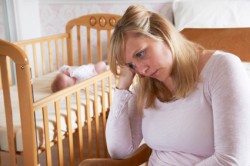How to Recognize Postpartum Depression
Almost all new mothers experience some type of sadness after they have their child; this feeling, normally called the baby blues, is extremely common. However, 10 to 20 percent of mothers will likely experience a more severe type of issue called postpartum depression. If you are expecting a child, it can be very helpful to you to be able to recognize the symptoms of this disorder and to know when it may be time to seek help.
The Symptoms of Postpartum Depression
If you are beginning to experience this disorder, it can be very hard to step back and ask yourself if your feelings are being caused by postpartum depression. Knowing the symptoms can be very helpful to you and your loved ones in determining whether or not you are struggling with this particular disorder after having a child. According to the National Library of Medicine, some of the most common symptoms of postpartum depression include:
- A depressed mood
- Agitation or irritability
- Appetite changes
- Feeling withdrawn, unconnected, worthless, or guilty
- Loss of energy and concentration
- Sleep problems
- Severe anxiety
- Thoughts of suicide
- Lack of interest in activities that once mattered to you
It is also likely that a mother suffering from this disorder will worry too much about her baby or, on the other side of the spectrum, take little to no interest in her child. She may also not want to be alone with her child, be unable to care for herself and/or her child, or begin to feel negatively toward the baby.
How Do You Know It’s Postpartum Depression?
The NLM states, “The symptoms of postpartum depression are the same as the symptoms of depression that occurs at other times in life,” but there are certain ways to know that your feelings should be attributed to this particular disorder. For example, feeling overwhelmed, upset, or angry about tasks that involve your child are a likely sign. If your depression is stemming from the fact that you have just given birth, it will often be difficult for you to care for or be around your child in many ways.
In addition, the normal baby blues that affect up to 80 percent of women are usually less intense than those of postpartum depression and can be attributed to the fact that the new mother is tired and also nervous about the responsibility of caring for a new baby. According to the National Institute on Mental Health, “Baby blues… includes feelings that are somewhat mild, last a week or two, and go away on their own.”
If you begin to feel extremely anxious, depressed, unhappy, or start to have thoughts about hurting yourself or your baby, it is more likely that you have postpartum depression. While it is important to note that these thoughts are almost never acted upon by mothers with this disorder, it is still important that you seek help from your doctor so you and your baby can both go back to having a happy, healthy life together.
Want to Learn More About Postpartum Depression?
Call 888-647-0051 (Who Answers?) today to learn more about different disorders and the ways in which you can receive professional treatment for any you may be experiencing.






